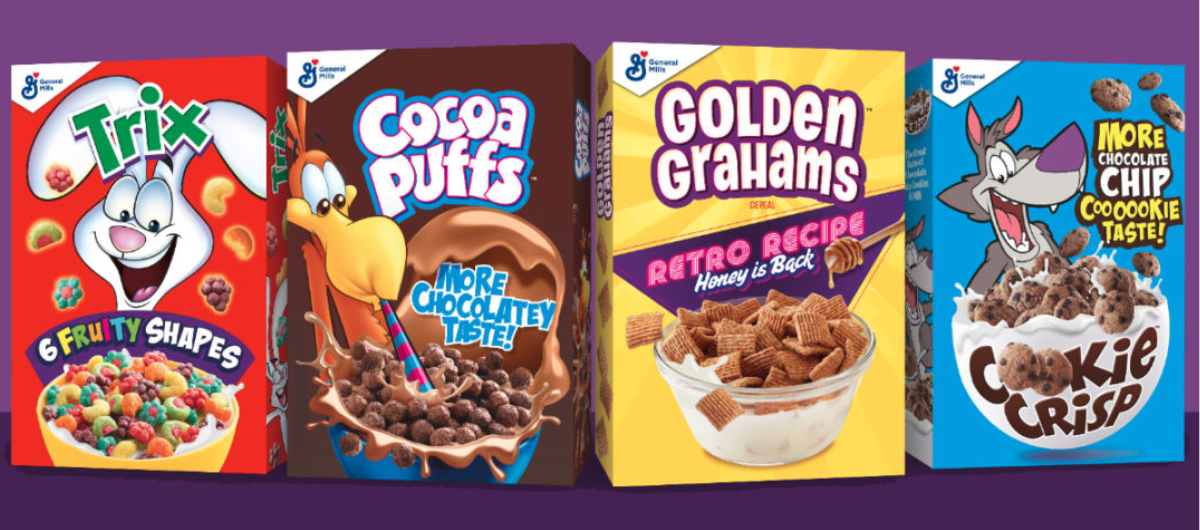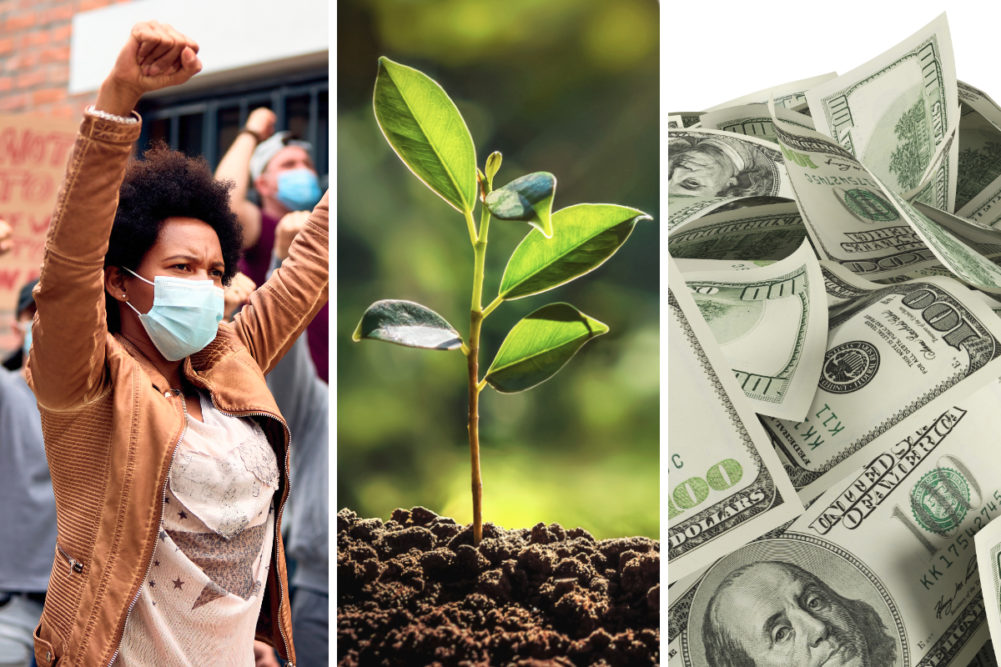LONDON — Consumers in 2021 will expect purpose-driven initiatives that support the “triple bottom line” — people, planet and profits — according to Euromonitor International.
Last year saw public attention largely shift from slower moving environmental threats to more urgent social issues.
“After George Floyd's death last year, some brands in the US posted messages of support on social media, while others launched full scale multi-channel marketing campaigns,” said David Mackinson, senior research analyst at Euromonitor. “However, just saying the right thing or simply standing in solidarity won't cut it anymore. Consumers want brands to back up those platitudes with actions.”
Thirty percent of consumers actively engage in political and social issues, Euromonitor found. When asked about their personal attitudes toward life in five years, more than a third of consumers said they expect the world will be a more dangerous place and there will be more political unrest in their country. Roughly the same amount said they are willing to boycott brands that don’t align with their values and switch to brands that engage in social and political issues.
“COVID has been a catalyst to rising consumer expectations that businesses need to do more for society,” said Maria Coronado Robles, sustainability insights manager at Euromonitor. “Many of them no longer perceive businesses as purely profit-driven entities. While they understand that financial performance is important for businesses, they demand companies help solve social problems.”
“COVID has been a catalyst to rising consumer expectations that businesses need to do more for society.” — Maria Coronado Robles, Euromonitor
Higher empathy for brands with a strong sense of social responsibility became a permanent consumer demand in 2020, but the pandemic-driven spike in social initiatives will not eclipse environmental concerns in the year ahead. Nearly 70% of professionals expect consumers will be more concerned about sustainability post-pandemic than they were pre-pandemic, and half of consumers expect climate change will impact their life more in 2025 than it does now, Euromonitor found.
Communicating sustainability efforts will be critical going forward.
“Businesses need to connect with consumers to build their trust and gain their loyalty,” Ms. Coronado Robles said. “To do that, it’s important to give them the facts. Businesses are finding new ways to engage ethical consumers by measuring and communicating their carbon footprint, for example.”
On the health and wellness front, consumers will be concerned with mental resilience in 2021. Seventy-three percent of consumers said depression and mental health have a moderate or severe impact on their everyday life, according to Euromonitor.
“The global pandemic has shaken up countless lives across the world, testing our mental resilience and restricting experiences,” Mr. Mackinson said. “Many consumers who are customed to addressing the symptoms of anxiety and deteriorating mental health are now forced to face the underlying causes. The pandemic has stirred up people's understanding of themselves and their place in the world in pursuit of a more fulfilled and self-improved life.”
 Functional foods and beverages that promote mindfulness may help consumers manage stress and anxiety. Products that illicit feelings of comfort and nostalgia may also support mental well-being.
Functional foods and beverages that promote mindfulness may help consumers manage stress and anxiety. Products that illicit feelings of comfort and nostalgia may also support mental well-being.
“Finding calm amid emotional upheaval has been a focus of the packaged food industry,” Mr. Mackinson said. “Consumers seek comfort in the familiar.”
He pointed to General Mills as an example. The company saw sales of longstanding brands like Betty Crocker and Pillsbury rise during the pandemic. It also leveraged the release of retro brands, bringing back the original recipes for its Cocoa Puffs, Golden Grahams, Cookie Crisp and Trix cereals.
“Nostalgia is a marketing strategy with consumer confidence shaken and shoppers less eager to try new products,” Mr. Mackinson said.
Euromonitor expects more consumers will think with a recessionary mindset in 2021. As discretionary spending declines due to an uncertain economic climate, shoppers will prioritize value-added and health-conscious products.
“What this means for businesses is that we'd really recommend them to invest in value for money propositions,” said Radhika Singal, research consultant at Euromonitor. “Any premium attribute in the present time will need to be endorsed with an empathetic narrative, as well as a strong tie in with health and wellness, or maybe even self-care and mental well-being.”





